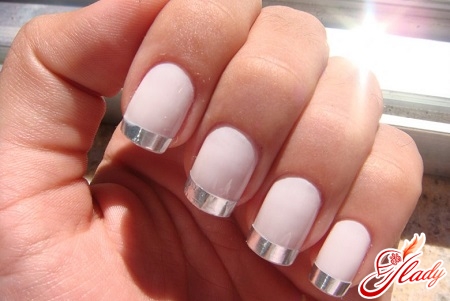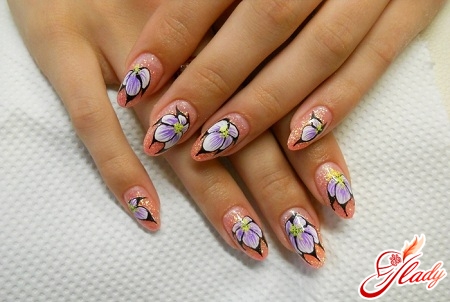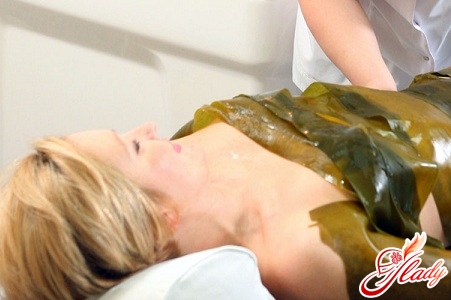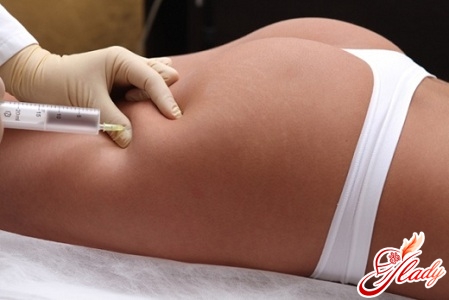 The beauty of every woman is natural.But natural gifts also need to be monitored and cared for. First of all, self-care is the key to health. And intimate hygiene is no exception. Many ladies are mistaken about the idea that it is enough to simply wash with soap every night and that's it. In fact, feminine hygiene is a collective concept that includes more than just banal washing and taking a shower. First of all, you need to figure out what you can and cannot do.
The beauty of every woman is natural.But natural gifts also need to be monitored and cared for. First of all, self-care is the key to health. And intimate hygiene is no exception. Many ladies are mistaken about the idea that it is enough to simply wash with soap every night and that's it. In fact, feminine hygiene is a collective concept that includes more than just banal washing and taking a shower. First of all, you need to figure out what you can and cannot do.
Daily washing
There is one immutable rule - for a womanIt is necessary to wash yourself every day, preferably in the morning and in the evening. Some women carry out water procedures using toilet soap, sometimes antibacterial agents are used. This is where the first mistake lies! The fact is that each woman's vagina has its own special microflora, and antibacterial soap washes away beneficial bacteria. The composition of the microflora is predominantly slightly acidic, and it cannot "coexist" with the alkaline composition of soap. With frequent use of such detergents, thrush or candidiasis can occur. When washing, women direct the stream of water from above and begin to vigorously rub the genitals to wash thoroughly. This is the second gross violation! It is necessary to direct the stream from the pubis to the anus. Moreover, the stream should not be strong, and the water temperature is about 30 degrees. Hand movements should be directed only in one direction - from the pubis down. The opposite movement provokes the movement of harmful bacteria to the vaginal area. By the way, all girls should be washed like this from birth. The most common disease that occurs when washing is done incorrectly is trichomoniasis. Wash yourself well and start drying yourself. What's so difficult about that? But not everyone knows that you shouldn't rub your genitals vigorously, but just gently blot them. The towel for such use should be individual. It should be changed every three days - a humid environment can become a "paradise" for pathogenic bacteria. If a woman is diagnosed with candidiasis, trichomoniasis, thrush, then you should use disposable towels.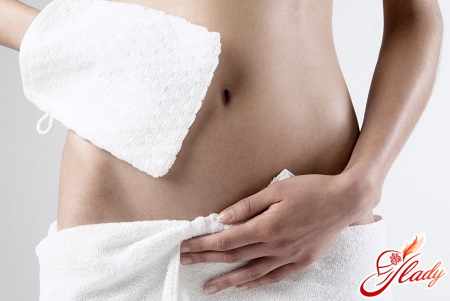
Sanitary napkin
Now many brands offer to usepads every day - and it is very convenient. During the day, some discharge is still present, the underwear may get dirty, and the sensations in wet underwear are unpleasant. But here too you need to be careful.
- First, the woman's hygiene is not a "blockage" and complete isolation of the genitals;
- Secondly, even if you use daily gaskets, then you need to change them every 4-5 hours;
- And, thirdly, you can not wear them all the time.
The thing is that the skin of the perineum when wearingsuch a hygiene product practically does not breathe - this can cause hives, irritation, and allergic reactions. Agree, it is not pleasant when rashes appear and constant itching follows.
Hygiene during menstruation
Critical days are a special case.Not only does vaginal discharge constantly appear, but it is also a favorable environment for the reproduction of bacteria. Add to this humidity, wearing pads, tight underwear and you get a complete set for the development of infection. So, a woman's intimate hygiene during menstruation should be carried out especially carefully. You cannot wear a pad for more than three hours. You cannot wash yourself with too hot water. You cannot use antibacterial soap or gels for intimate hygiene, it is better to take baby soap. You cannot wear synthetic underwear on such days - it is airtight, and will further increase the chances of developing an infection. If you cannot wash yourself, then use wet wipes. Just buy them at a pharmacy, with a note about the purpose. Then they will come in handy on ordinary days - you never know what can happen. A business trip, an office, a trip to the countryside - wet wipes for intimate hygiene will always come in handy!
Some general rules
Doctors have several basic rules regarding feminine hygiene:
- Soap can only be washed by the perineum and around the vagina;
- The temperature of the water for washing should not be hot or cold. Find the "golden mean" for yourself - let it be pleasantly warm water;
- It should only be washed away from the vagina to the anus;
- You can not intensively wipe the genitals after water procedures, just lightly pat yourself with a towel;
- During menstruation, avoid sexual intercourse. Not only is this unhygienic, so also the risk of drift of infection increases at times;
- If the skin is sensitive to the perineum, do not use daily pads, do not wash with soap or gel.
Remember, intimate hygiene is a mustprocedure. You just need to understand this rule once and for all. Then not only will the unpleasant smell and feeling of discomfort not haunt you, but the danger of infection will simply disappear. A special section is care of the genitals in the postpartum period. Each woman will be given recommendations by a gynecologist before being discharged from the maternity hospital.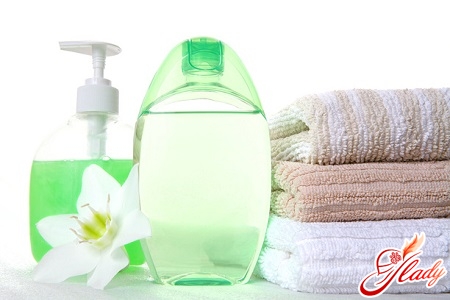
What is hygienic cosmetics?
Nowadays there are a large number ofvarious creams, gels and mousses that can take care of a girl's intimate areas. There are two main types of intimate cosmetics on sale: sexual, intended more for pleasure, and hygienic cosmetics, which perform a very specific function. Such hygienic products cope with the task of cleansing and toning much better than toilet soap, because they can be applied to the mucous membrane. It is not recommended to use regular toilet soap for intimate area care, due to the fact that it contains a large amount of alkali. The use of such soap disrupts the state of the microflora (kills lactobacilli), which can lead to the penetration of infection into the intimate area. Also, the use of regular soap can cause dryness, cause irritation and even dysbacteriosis - a violation of the microflora of a woman's intimate areas. Intimate products should be of a gentle and soft consistency, they should not contain any rough particles or aggressive components. When buying intimate soap or gel, first of all, you should pay attention to the fact that this product cannot disrupt the acidity of the mucous membrane. When choosing a product, you need to thoroughly study the information on the label. If the inscription on the label says: "Destroys 99.9% of all harmful bacteria!", then it is better to refuse to buy it, as this means that this product disinfects too much and can kill both harmful and very useful and necessary bacteria. They say that soap for intimate hygiene can cure vaginal candidiasis, but this is only partially true. If the cause of whitening is an elementary failure to comply with the rules of personal hygiene, then a product for the care of intimate areas can be quite effective. But if this is, for example, dysbacteriosis, then hygienic cosmetics will not be able to help in any way. Here is another warning that you should definitely keep in mind when buying intimate soap: this kind of cosmetics can cause a fairly strong allergy. Many intimate care products contain various medicinal plants. Therefore, you need to be very careful here and choose a product based on your personal characteristics. We recommend reading:




